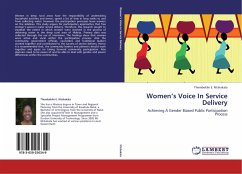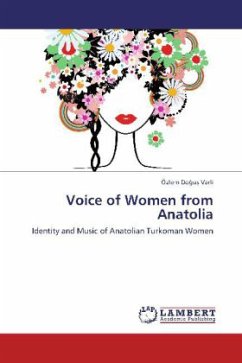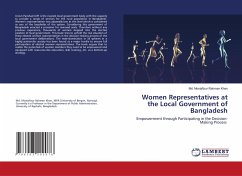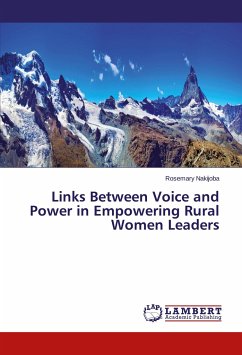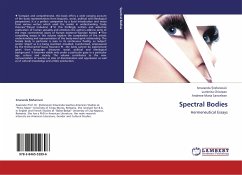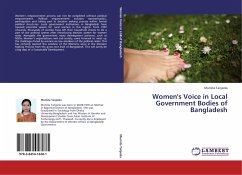
Women's Voice in Local Government Bodies of Bangladesh
Versandkostenfrei!
Versandfertig in 6-10 Tagen
32,99 €
inkl. MwSt.

PAYBACK Punkte
16 °P sammeln!
Women s empowerment process can not be completed without political empowerment. Political empowerment includes representation, participation and taking part in decision making process within formal political structures. Local government institutions in Bangladesh have opened potential spaces for rural women in this regard. From 1997 onwards, thousands of women have left their household chores to be a part of the political system after introducing election system for women seats. Alongside the government many development partners, such as NGOs, Women s organizations and civil society, came forw...
Women s empowerment process can not be completed without political empowerment. Political empowerment includes representation, participation and taking part in decision making process within formal political structures. Local government institutions in Bangladesh have opened potential spaces for rural women in this regard. From 1997 onwards, thousands of women have left their household chores to be a part of the political system after introducing election system for women seats. Alongside the government many development partners, such as NGOs, Women s organizations and civil society, came forward to meet up the challenges faced by women as new members of the political realm. This has certainly opened the window of the Women's voice in the Decision Making Process from the grass root level of Bangladesh. This will surely be a big step of a Sustainable Development.




